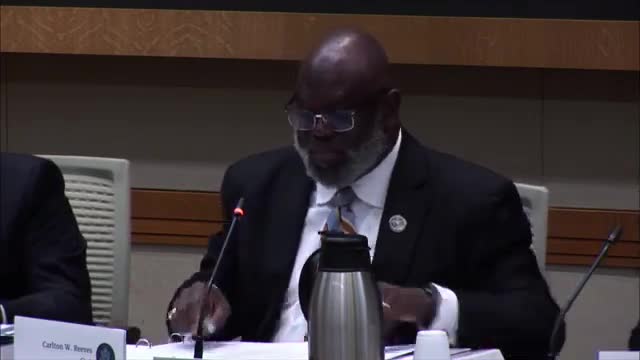Defenders and probation back retroactivity for drug‑death base‑level change; DOJ and victims group oppose reopening sentences
Get AI-powered insights, summaries, and transcripts
Subscribe
Summary
The commission considered whether to make retroactive a clarification to USSG §2D1.1 that narrows when enhanced base offense levels apply for drug offenses linked to death or serious bodily injury.
The commission considered whether to make retroactive a clarification to USSG §2D1.1 that narrows when enhanced base offense levels apply for drug offenses linked to death or serious bodily injury.
The Department of Justice argued strongly against retroactivity. Paige Messick said that many of the 538 cases the commission identified as potentially affected would include stipulations or records demonstrating the high culpability and that nearly 60 percent of identified cases were sentenced below the guideline range. Messick warned that reopening those sentences would “put victims through the trauma of proceedings that they thought for good reason were closed,” and could generate disparities tied to record availability rather than case facts.
Defenders urged retroactivity. Adeel Bashir and other defense witnesses said the amendment restores proportionality where courts or prosecutors applied enhanced base levels that treated guideline computations as if a higher statutory standard had been met. Bashir said the group expected substantial sentence reductions in some cases and argued that the amendment “promotes fair, uniform guideline application and proportional punishment.” He added that 3582(c)(2) procedures provide safeguards that judges can use to deny reductions where inappropriate.
POAG supported retroactivity in this instance. The probation group said a change in base offense calculation could be large and straightforward to identify in most PSRs because the quantity information or stipulations are usually present; POAG noted the change had a “large impact” in individual cases and recommended retroactivity to correct systemic injustices.
The Victims Advisory Group strongly opposed retroactivity. Mary Grama Leary told the commission that death and serious bodily injury are “certain” harms and that reopening sentences violates victims’ expectations of finality and would retraumatize survivors; she also cited Commission data showing that many firearm and violent offenders sentenced under related Guidelines have high recidivism and serious histories.
Commissioners questioned witnesses about how many cases would move from high base levels (e.g., level 38) to much lower quantity‑driven levels (for example level 12), whether stipulations were commonly used, and how prosecutors exercise charging discretion. Witnesses said many plea agreements include stipulations but that a small subset of cases—often fentanyl‑related drug‑death prosecutions with low recorded quantities—would see the largest shifts.
Ending: The commission recessed and said it would consider the testimony and comments before deciding whether to apply the 2D1.1 amendment retroactively.
